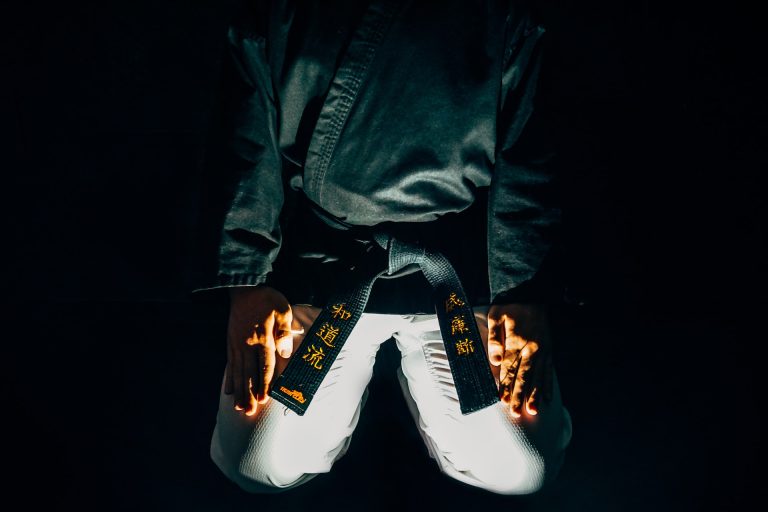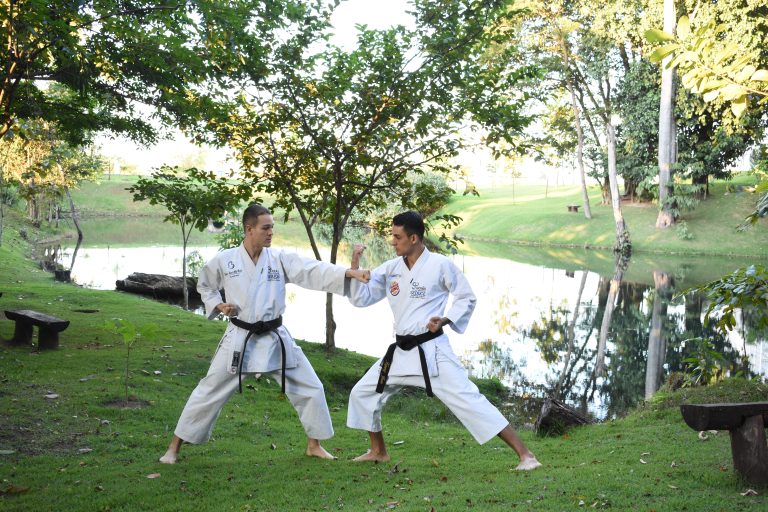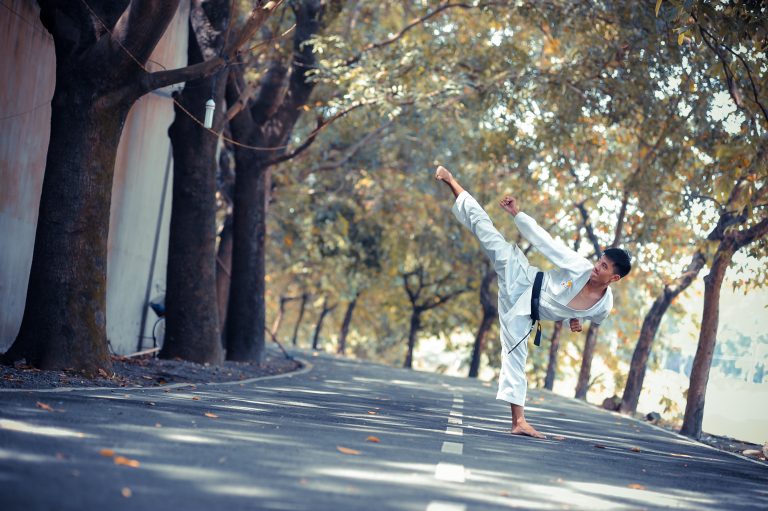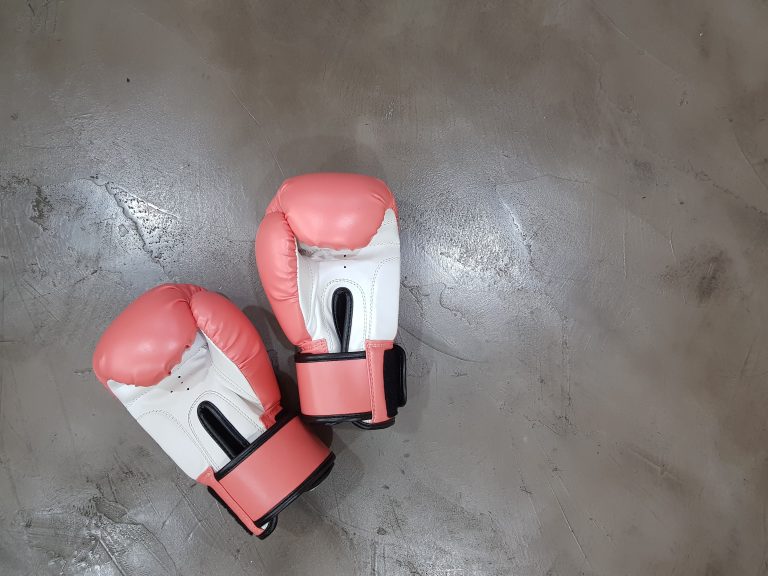Everything You Need to Know About Becoming a Professional Karate Fighter
Most martial arts practitioners and hobbyists will tell you that becoming a professional karate fighter is no easy task. Not only must a competitor possess years of knowledge, skill, and dedication—they must also demonstrate superior resilience, agility, and physical strength. In order to go beyond casual karate practice and become a professional martial artist, comprehensive knowledge of the sport is essential.
In this blog post, we’ll answer some of the most commonly asked questions about becoming a professional karate fighter. We’ll cover everything from the necessary training and financial considerations, to the various organizations, rules and regulations. By the end of this blog post, you should be well informed about the necessary steps for becoming a professional karate fighter.
What is Professional Karate?
Professional karate is typically referred to as ‘sport karate.’ It refers to martial arts competition conducted to professional standards. Other terms for professional karate include competition karate, Olympic karate, or simply ‘sport.’ Unlike casual karate practice, professional karate competitors engage in sparring matches—also known as kumite—following the rules and regulations set out by organizations like the World Karate Federation (WKF).
Who Can Compete in Professional Karate?
Anyone who has developed their karate skills to a competitive level can compete in professional karate events. Adult competitors must be 18 years old and younger competitors must be at least 8 years old. Additionally, all competitors must be members of their respective National Karate Federation (NF). The NFs are organizations that oversee the rules of tournaments and provide standards for competitors, judges and other tournament organizers.
What Equipment Is Necessary for Professional Karate?
Members of the WKF must adhere to strict equipment standards to ensure a safe and fair competition. All competitors are required to wear a proper dobok—a traditional martial arts uniform—and safety gear such as groin protectors and mouthpieces. For men, this includes mandatory chest guards.
In addition to clothing and protective gear, competitors must also use approved WKF-recognized weapons such as Kata bo (wooden staff), Sai (metal truncheon), Nunchaku (two sticks connected at the ends by a rope) or Tonfa (a stick with a handle).
What Are the Rules of Professional Karate?
Competitors must abide by specific martial arts rules during competition. The WKF has detailed guidelines for kumite matches and outline specific behavior, techniques and regulations which all competitors must adhere to. To learn more about WKF rules for kumite matches, please see 2020 World Karate Federation (WKF) rules and regulations.
How Do I Become a Professional Karate Fighter?
Becoming a professional karate fighter is not an overnight process—it requires months, or even years of dedicated practice and training. Below are some important steps you should take to become a professional karate fighter:
1. Seek Out Professional Training
To become a professional karate fighter, you must first join a reputable dojo or academy and seek out professional, structured training. This can include finding an instructor with professional experience and undergoing rigorous technical, physical, and mental training. The best instructors will be able to teach you the fundamentals of the martial art and develop your abilities through comprehensive drill and sparring exercises.
2. Step Up Your Committment Level
If you want to take your karate skills to the next level and become a professional fighter, you’ll need to significantly step up your commitment level. This includes dedicating time and money to practice, investing in safety control gear such as gloves and mouth guards, participating in frequent tournaments, and joining a league or organization.
3. Compete in Tournaments
The best way to hone your skills (and gain recognition) as a karate fighter is by competing in tournaments around the world. There are countless tournaments in numerous countries every year—from local tournaments to international events such as world championships and Olympic qualifying trials. Participating in one or more tournaments is essential to becoming a professional fighter.
4. Join an Organization
You’ll also need to join an appropriate organization or league in order to compete professionally. The best option is oftentimes joining the WKF—the official association of amateur martial arts international organizations devoted to the practice of competition karate at the highest level—which provides guidance, resources, advice and support for martial arts competitors..
Conclusion
Becoming a professional karate fighter is no easy feat—it takes hard work, dedication and commitment to develop the necessary skills and make it to the top level of competition. If you’re ready for the challenge and willing to dedicate yourself completely to this sport—then follow these steps in order to become a professional fighter: seek out professional training, step up your commitment level, compete in tournaments and join an organization such as the WKF. With persistence and hard work, you’ll be on your way to becoming a successful professional fighter in no time!
Everything You Need to Know About Becoming a Professional Karate Fighter
Becoming a professional karate fighter involves passion, determination, hard work, and discipline. It requires a lot of dedication and sacrifice, both physically and mentally. If you are considering a career as a professional karate fighter, you probably have a lot of questions about the path and the process. In this blog post, we will explore the most frequently asked questions about becoming a professional karate fighter.
What is Karate?
Karate is a martial art that originated in Japan. It is a form of unarmed combat that involves striking, kicking, and grappling techniques. Karate focuses on developing physical and mental strength, discipline, and self-defense skills. Karate is also a competitive sport, with a set of rules and regulations that govern the competition.
What Does it Take to Become a Professional Karate Fighter?
Becoming a professional karate fighter requires a lot of hard work and dedication. You need to have a strong passion for the sport, and be willing to put in long hours of training and practice to improve your skills. Discipline and mental fortitude are also key qualities for a professional fighter. You need to be able to withstand physical and emotional challenges, and push through obstacles to achieve your goals.
What is the Process to Become a Professional Karate Fighter?
The process of becoming a professional karate fighter starts with training and practice. You need to find a reputable karate school or gym and work with an experienced coach or trainer to develop your skills. You also need to start competing at the amateur level to gain experience and exposure. As you gain more experience and success in competition, you can start to gain a following and attract the attention of professional leagues or agents. Landing a spot in a professional karate league, such as the World Karate Federation or the Karate Combat, requires a combination of skill, experience, and networking.
What Skills are Required for Professional Karate Fighting?
Professional karate fighters need to have a variety of skills, including striking, kicking, grappling, and defensive techniques. They also need to have strength, endurance, and flexibility to perform at a high level. Mental toughness and resiliency are also important, as professional karate fighting can be physically and emotionally draining. Professional fighters also need to have good sportsmanship and be able to follow the rules of competition.
What Are the Risks and Challenges of Professional Karate Fighting?
Professional karate fighting comes with significant risks and challenges. The physical toll of training and competition can lead to injuries, such as fractures, concussions, and torn ligaments. The mental strain of training and competition can also be challenging, leading to stress, anxiety, and depression. Professional fighters also face the risk of financial instability, as earning a living from karate fighting is not always easy. Marketing oneself and building a brand is crucial for financial success.
How Much Can a Professional Karate Fighter Earn?
Earnings for professional karate fighters can vary widely depending on their level of success, league, and sponsorships. Highly successful fighters can earn millions of dollars in prize money, sponsorship deals, and appearance fees. However, most professional fighters earn a modest income from their sport, and need to supplement their income with other jobs or sources of revenue.
What Are Some Tips for Becoming a Professional Karate Fighter?
If you are interested in becoming a professional karate fighter, here are some tips to help you along the way:
- Start by finding a reputable karate school or gym and work with an experienced coach or trainer to develop your skills.
- Attend karate tournaments to gain experience and exposure.
- Develop a strong social media presence to gain a following and attract attention from professional leagues and agents.
- Stay disciplined and committed to your training and practice.
- Market and brand yourself by creating a unique image, style, and persona that stands out from the competition.
Conclusion
Becoming a professional karate fighter is a challenging and rewarding career path that requires passion, discipline, and hard work. With the right training, practice, and mindset, you can achieve your goals and become a successful professional fighter. While it comes with significant risks and challenges, the rewards can be substantial both financially and emotionally. By following these tips and strategies, you can take the first steps towards achieving your dream of becoming a professional karate fighter.
Inhaltsverzeichnis






